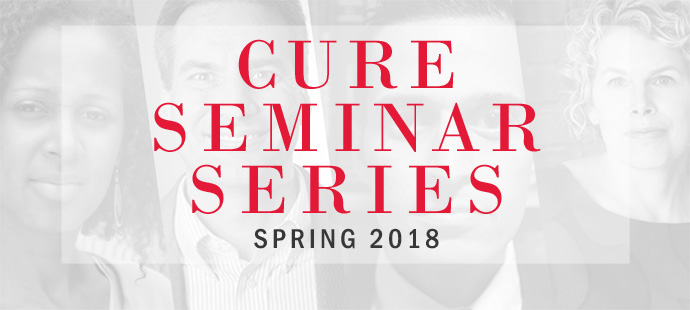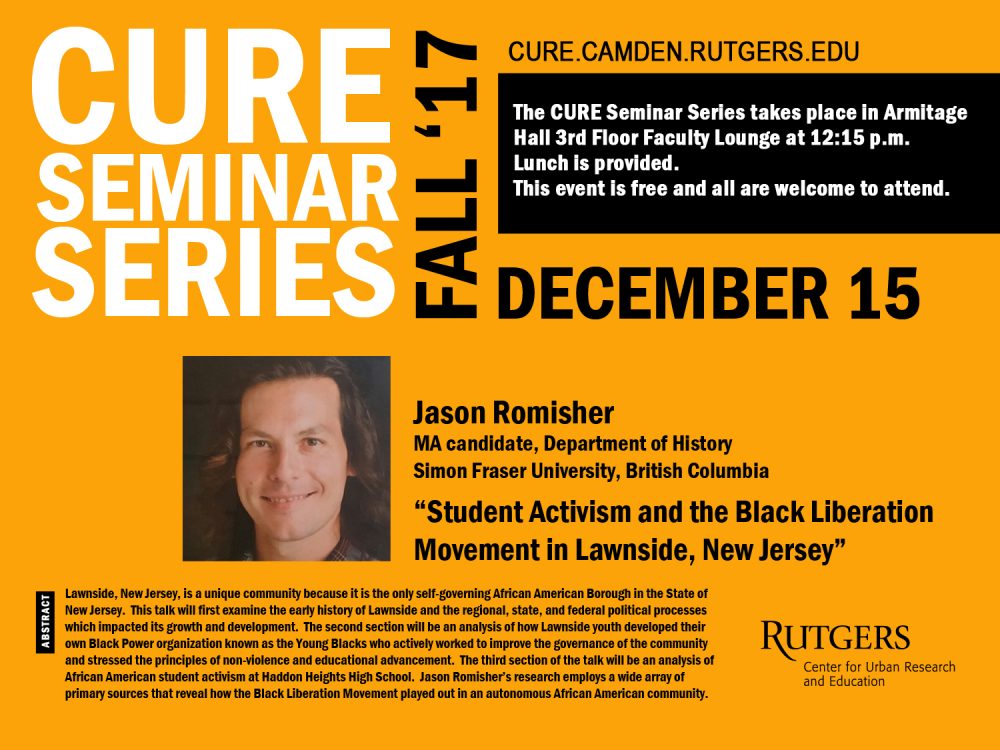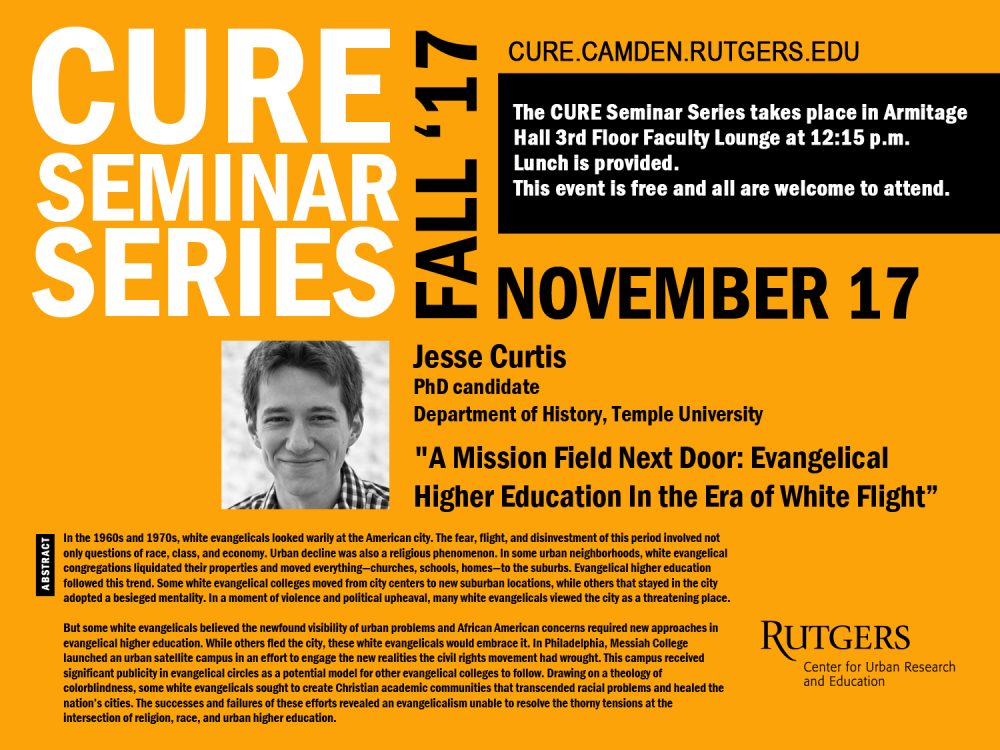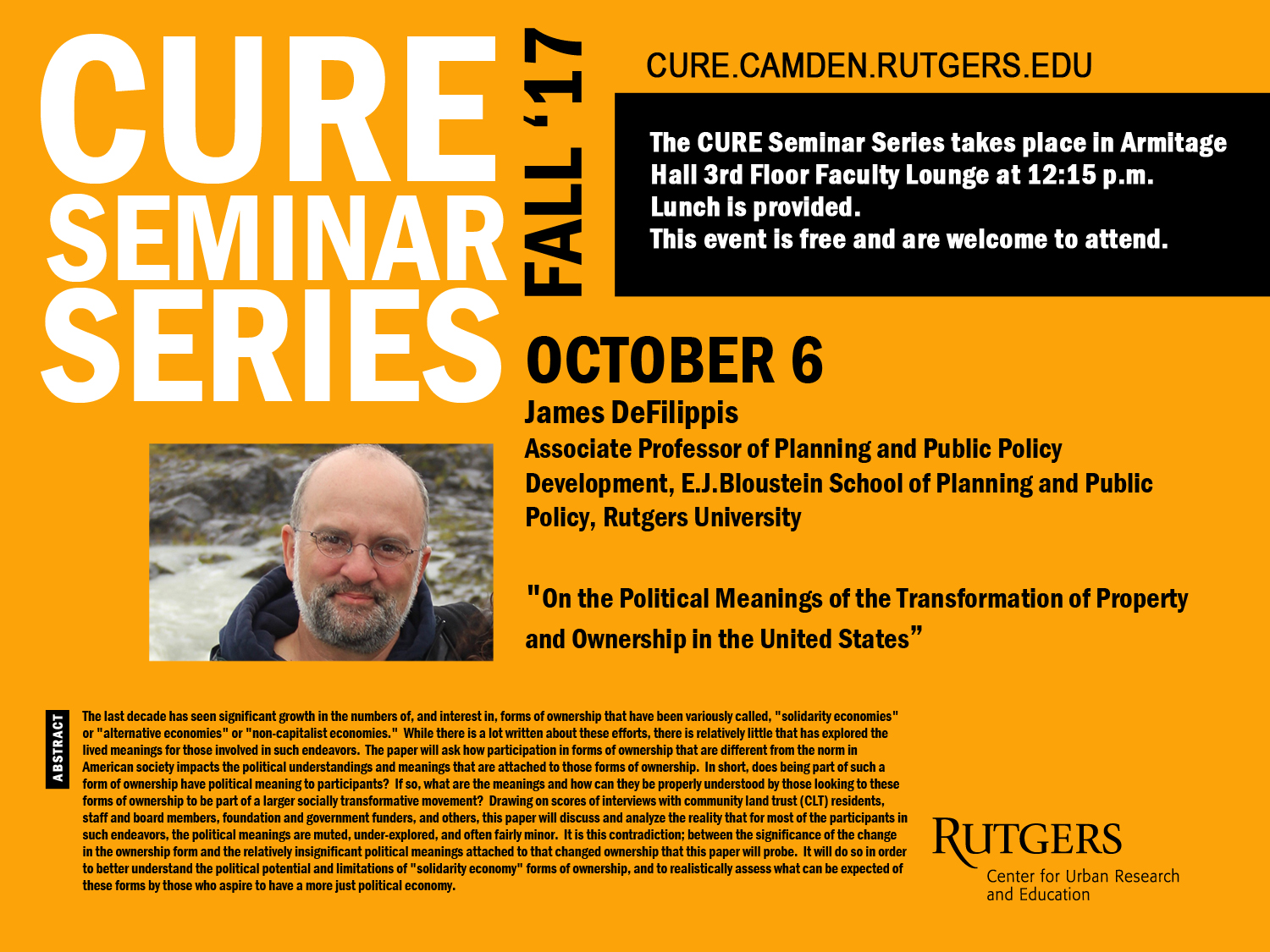
Friday, February 16
Armitage Hall, Faculty Lounge
11:15 a.m. – 12:30 p.m.
Presented by James Wolfinger
Associate Dean & Professor Secondary History at DePaul College of Education
Philadelphia exploded in violence in 1910. The general strike that year claimed the lives of some two dozen people and made Philadelphia a prominent point in the tumultuous national conflict over workers’ rights. That strike was a notable point, but not a unique one, in the history of Philadelphia’s transit system. My paper, “Running the Rails: A History of Capital and Labor in the Philadelphia Transit Industry,” outlines the chief arguments that I make in my recent book, Running the Rails (Cornell University Press, 2016), which details a generations-long history of conflict between the workers and management at one of the nation’s largest privately owned transit systems. In particular, I focus on how labor relations shifted from the 1880s to the 1960s as transit workers adapted to fast-paced technological innovation to keep the city’s people and commerce on the move while management sought to limit its employees’ rights. I argue that it is remarkable to see how much Philadelphia’s transit workers achieved. (more…)

 Lawnside, New Jersey, is a unique community because it is the only self-governing African American Borough in the State of New Jersey. This talk will first examine the early history of Lawnside and the regional, state, and federal political processes which impacted its growth and development. The second section will be an analysis of how Lawnside youth developed their own Black Power organization known as the Young Blacks who actively worked to improve the governance of the community and stressed the principles of non-violence and educational advancement. The third section of the talk will be an analysis of African American student activism at Haddon Heights High School. Jason Romisher’s research employs a wide array of primary sources that reveal how the Black Liberation Movement played out in an autonomous African American community.
Lawnside, New Jersey, is a unique community because it is the only self-governing African American Borough in the State of New Jersey. This talk will first examine the early history of Lawnside and the regional, state, and federal political processes which impacted its growth and development. The second section will be an analysis of how Lawnside youth developed their own Black Power organization known as the Young Blacks who actively worked to improve the governance of the community and stressed the principles of non-violence and educational advancement. The third section of the talk will be an analysis of African American student activism at Haddon Heights High School. Jason Romisher’s research employs a wide array of primary sources that reveal how the Black Liberation Movement played out in an autonomous African American community.
